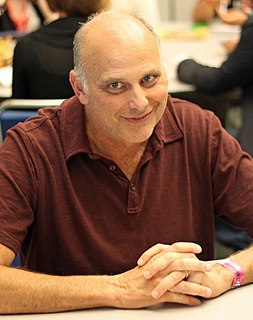A Quote by Eavan Boland
I didn't know how to weigh ideas about poetry. Nothing in the life I lived as a student - and later as wife and mother at the suburban edge of Dublin - suggested I had the wherewithal to do so. But I did have a unit of measurement. It was the measure of my own life.
Related Quotes
If I had not lived the life I had lived and did not have the wife I have and the children I have, I would never know how to play that role [of Dr. Bedsloe], and I wouldn't have any of those qualities. It's a real example of how it is true that the camera catches everything. Even the stuff you're trying to hide.
When I lost my wife I had a whole different concept of her life. She lived 21 years and people who knew her know it wasn't about the great things she did on this earth. It wasn't that she had money or had popularity, it was that she loved Jesus Christ more than anything else in this world. That was how she related to the world.
I did not always know I would be a writer. Until I had a room of my own, I did not write much at all - no more than any other child who read a lot of books. I began to write fiction and poetry when I first had a room that was truly my own with a door that shut and some measure, however fragile, of privacy.
The first part of my life was to be an actor and maybe have some success at that. Then [it was time] to find somebody to be in a relationship with and have a life that way. Because of Parkinson's, I had to change: How can I be of service here? Is there something unique to my situation that I can use to help people? I did not have the wherewithal to invent that. It just happened in front of me and had me join in.
The hardest stories we tell are always about ourselves. How do you explain that you have been missing your mother for 20 years? I don't know how to explain that to you. I wasn't even sure I wanted to film that, because I don't know how I felt about it. I didn't want to put her through it, and I frankly wasn't ready. Because since I was 16, I just had created my own life for myself, you know? I left when I was 12. I'm 32. And I have gotten to know my mother more through editing her and looking and watching and editing her footage, you know.
From this outer edge of his life, looking back, there was only one remorse, and that was only that he wished to go on living. Did all dying people feel this way, as if they had never lived? Did life seem that short, indeed, over and done before you took a breath? Did it seem this abrupt and impossible to everyone, or only to himself, here, now, with a few hours left to him for thought and deliberation?
Was his life nothing? Had he nothing to show, no work? He did not count his work, anyone could have done it. What had he known, but the long, marital embrace with his wife. Curious, that this was what his life amounted to! At any rate, it was something, it was eternal. He would say so to anybody, and be proud of it. He lay with his wife in his arms, and she was still his fulfillment, just the same as ever. And that was the be-all and the end-all. Yes, and he was proud of it.
Women are taught that their main goal in life is to serve others--first men, and later, children. This prescription leads to enormous problems, for it is supposed to be carried out as if women did not have needs of their own, as if one could serve others without simultaneously attending to one's own interests and desires. Carried to its "perfection," it produces the martyr syndrome or the smothering wife and mother.
All lives are composed of two basic elements," the squirrel said, "purpose and poetry. By being ourselves, squirrel and raven, we fulfill the first requirement, you in flight and I in my tree. But there is poetry in the meanest of lives, and if we leave it unsought we leave ourselves unrealized. A life without food, without shelter, without love, a life lived in the rain—this is nothing beside a life without poetry.






































